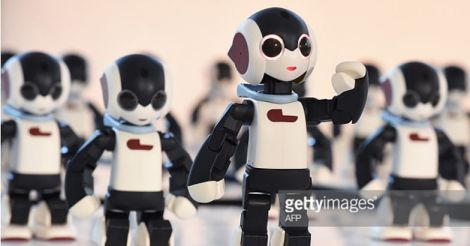I recently came across two relevant articles dealing with the question of the impact of technological advances on employment (Malayala Manorama, February 8). The issues raised in these timely articles cry for attention from administrators, educators and workers alike.
Across the world, apprehensions have been raised about the loss of jobs due to the leap in technological innovations.
The question is nothing new though.
In 1589, William Lee was turned away by the British Queen when he tried to present his latest invention, a knitting machine. The queen said to Lee: "You aim high, Master Lee. Consider though what the invention could do to my poor subjects. It would assuredly bring to them ruin by depriving them of employment, thus making them beggars."
Workers had used their collective might to stall the introduction of new machines and technology during the Industrial Revolution. The agitation against the introduction of computers is still fresh in our memory.
Yet technology has only increased employment opportunities and lessened the burden of manual laborers.
'Technological unemployment'
The 21st century, however, is an altogether different ball game. Technological experts and sociologists have already warned against an all-pervading “technological unemployment”.
The world is witnessing a big leap in artificial intelligence-related knowhow such as Big Data manipulation, machine learning and mobile robotics.
An Oxford Martin School survey of about 800 factories in the United States has found that 47 percent of them have a higher probability of being computerized and 19 percent were at a medium-level risk. Only 33 percent of employment was safe for the time being, the study pointed out.
People who are already part of the workforce and those looking to get into it should take serious note of this study. It is better to look for the kind of jobs that are free from the risk of being computerized rather than worrying about jobs being taken away.
The study puts jobs related to creative intelligence, social intelligence and health care services at a low risk of being taken over by machines.
Anyway, robots are not going to take over some jobs one fine morning. A major part of most jobs would be gradually assigned to machines. A physician, for instance, may rely on an intelligent machine for diagnosis and treatment after all the tests are done. The physician will have to reenter the scene to brief the patient about the diagnosis and the treatments available.
He may have to do a bit of sweet-talking while the patient is being sedated but the machines may be doing the actual surgery.
The career of a physician depends a lot on his ability to adapt his job to computing and robotics. Professionals who are able to increase productivity by mastering technological tools will be in high demand. Whoever tries to resist this advance will be left out. This is true of any other profession.
The Kerala conundrum
Where does Kerala stand in such a scenario?
The state has at least one lakh professional drivers. The vocation may be phased out globally by 2030 thanks to innovations in sensor technology, computing and Big Data processing.
Simultaneously, drones would be at work everywhere, from supplying essential medicine at an accident site to delivering pizzas in skyscrapers. These machines would need pilots.
Drivers are faced with two options here: They could either pick a fight with the autonomous vehicles like they do with Uber and other mobile app-based taxi services or learn to be drone operators in preparation for a day when they rule logistics.
The education system in the new world should change accordingly. If you have been planning to study an area of choice and find a suitable job that would earn your bread for the rest of your life, you are still in the 20th century. Anyone entering the workforce in 2025 will have to change jobs two or three times. If you started out working as a drone pilot, you may end up operating a machine that cleans the window panes of a high rise!
The most essential survival skill would be your ability to adapt to changes. You may be able to stay afloat if you are able to change jobs, change professions and change the country of occupation without goofing up.
It does not matter what you have chosen to learn. You have to learn to learn perpetually. Training is for a lifetime. It is better to keep yourself updated in your field of interest and get yourself the latest training rather than investing your time and money in a single degree course.
(The writer is the chief of disaster risk reduction in the United Nations Environment Program. The opinions are personal.)

























 Representative image
Representative image